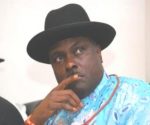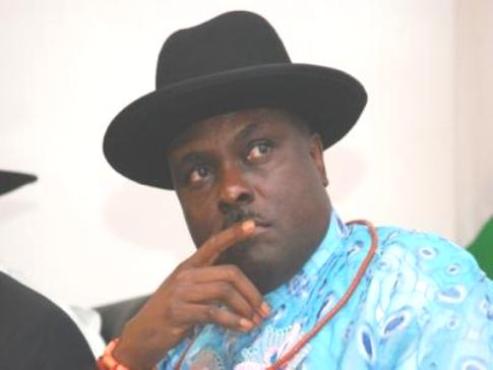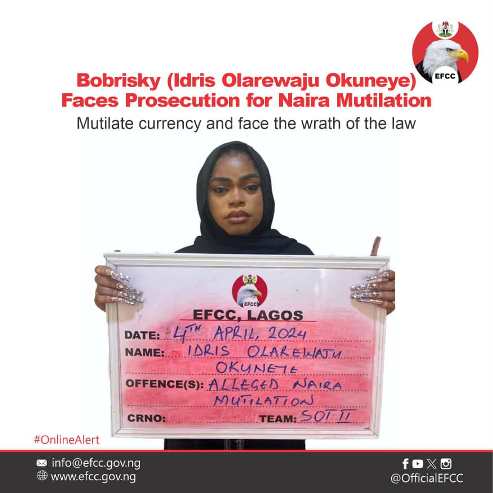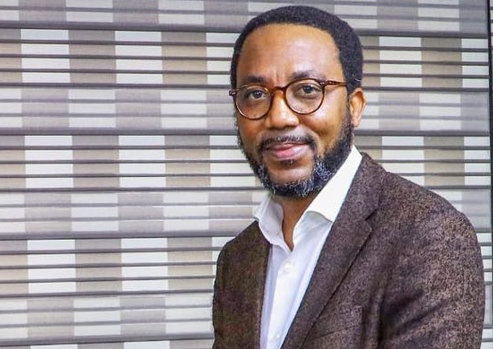Re-Examining Current National Policy on Education Vis-a-Avis Govts’ Language Policies

By Akporhobo Tataunu
LAGOS FEBRUARY 2ND (URHOBOTODAY)-According to Sapir, “Language is a purely human and non-instinctive method of communicating ideas, emotions and desires by means of voluntarily produced symbols.” Sapir’s definition of language underscores the relevance of training and retraining all those who wish to be skillful in the use of language.
The Head of National Office of West African Examinations Council (WAEC) and the Registrar of National Examinations Council (NECO) have released the 2014/2015 November/December exams with more depressing results recorded in English Language. They painted a gory tale as the result concerned English Language. The percentage of participants in these exams who failed the Subject had continued to grow and it has become a hapless situation; this is the situation for quite some time now.
It is a summary of the downward sliding trend in our educational growth vis a vis the poor scientific and technological development of Nigeria. Ideas can better be initiated and created with a strong foundation in the languages. Thus, it becomes very necessary to re-examined the current National Policy on Education, NPE which gives birth to teaching pupils in their mother tongue in the first three years of primary schools. The damn question is ‘how much successes have we as a people recorded since the implementation of this policy? This is even worst with the emergence of ‘Home Videos’ and Nollywood films coupled with an ever increasing urbansation in the Nigerian environment. Therefore, the need to extend use of the mother tongue in teaching in the primary schools till the fifth year cannot be overemphasized.
There is no argument of the essence of a national language policy in Nigeria but the question borders again on nepotism and ethnic cleavages. The result is that the Nigeria Educational Research and Development Council, NERDC must go back to the drawing board and perfect the National Language Policy and modes of implementation to the grassroots level.
Nigerians do not need to be burdened with learning, Hausa, Ibo or Yoruba in order to forge ahead with a more focused policy. What is wrong in adopting the English and French Language as the fulcrum of Nigerian National Language Policy? This is more so, some Nigerians are skillful in the use of these languages for commerce, interrelationship and diplomacy. The possibility of adopting these two languages which are already international languages pose a positive agenda in enhancing diplomacy, cohesion, conflict resolution, interaction amongst and between Nigerians and internationally. I am not sure of an Arabic speaking country that does not speak French as her other national language.
The execution of this policy will pose less problematic to the research institutes, teachers and students across the country. Indeed, resources can easily be accessed and utilized to attain higher scales in achieving notable results in language development. It has all been an amorphous policy situation and it is clear that those behind the development of a National Language Policy for Nigeria, NLPN have been at sea, on what and what not to do. The adoption of English Language and French Language as a Nigeria Language Policy will be a safe bet in all its ramifications.
Also, as a National Language Policy, Literature in English should be made a compulsory subject for every student at the senior secondary school level. This will in no small measures in addition to the English and French Language make the difference in impacting the proper language skills required for Nigerians. The challenges of executing the current National Language Policy are overwhelming as there are very few qualified language teachers in Nigeria at both the primary and secondary school levels. Because of the uncertainty surrounding the policies, inconsequential attention is directed at teachers and trainers of language teachers in Nigerian schools. The growing impact of pidgin English has constitute a major huddle for students and teachers and nothing is sight to address this problem than the adoption of English and French as National languages.
While, so much resources and time is given to organizing seminars, workshops and professional trainings for teachers of Mathematics and the Sciences in the country’s education ministries, teachers of languages are neglected and ignored.
According to Mrs. Irina Bokova, speaking in a United Nations, Education and Scientific Organization, UNESCO Language Day in 2011, maintained that language provides the software for information and communication technologies for promoting linguistic diversity.
While not oblivious of the role of mother tongue as a natural phenomenon, emphasis at the national level should be shifted to adopting the two international languages of English and French, while ethnic nationalities be charged with developing resources for their various languages. Otherwise, it will amount to dissipating scarce resources in the educational circles in pursuit of national language policies for Nigeria. In a conference held by the English Language Teachers Association of Nigeria, ELTAN in 2008, thrusted with countering the challenges of teaching English Language in a global world, Professor Damian Opara quoted Marx Warschauer analysis, as saying “ …. economic and employment trends will change the way English is used. Increasingly, non-native speakers will need to use the language daily for presentation of complex ideas international collaboration and negotiation, and location and critical interpretation of rapidly changing information. Finally, new information technologies will transform nations of literacy, making on-line navigation and research, interpretation and authorizing of hypermedia and synchronous and asynchronous on-line communication critical skills for learners of English.” The above taken together, will render ineffective curricula based strictly on syntactic or functional elements or narrowly defined tasks. Rather, project-based learning-incorporating situated practice and critical inquiry, and based on students own cultural frameworks will be required if students are to master the complex English literacy and communication skills required by the emerging informational economy and society.
However, according to Manfred B. Steger, also quoted by Damian Opara, ’the globalization of languages can be viewed as a process by which some languages are in increasingly used in international communications while others lose their prominence and even disappear for lack of speakers”.
Thus, allocating more resources to the expansion of learning materials for language teachers will be more rewarding than what obtains in the current circumstances. The core basis of education is the 3RS and 2 of this 3RS; reading and writing are inseparable. And researches at both local and international fora had concluded that “Early remediation of reading problems might aid not only the growth of literacy but also more general cognitive abilities that are of critical importance across the lifespan”.
The ability of a physics graduate to teach Mathematics class does not occur with a History graduate or a Mass Communication graduate having the capacity to teach English Language. Here lies the problem and inadequacies faced by the language teacher and the learners. Essentially, government needs to create opportunities for language students who would graduate into teaching students who would graduate into teaching the languages from the primary, secondary and tertiary institutions. There is no pretence about it initiating such a policy in order to fast track a national language policy. More language teachers, added to frequent and regular seminars and trainers’ workshops being organized by the government. Presently, Special Allowances for language teachers be introduced and implemented in States where is currently not operating as it were with the Mathematics and Science teachers in the country. They should be placed on special scales as motivation and strategy. For instance, how many secondary schools and indeed Colleges of Education have language laboratories for the teaching and learning of language courses in the schools. Because of the peculiarity of the languages, and the poor attention paid to the teaching of languages (English and French) many students do not show interest in the subjects, hence the ever increasing rate of students scoring very low marks in the final examinations of WAEC and NECO, year in year out.
Again, is the problem of study texts from the inconsequential role of government in promoting the teaching and learning of English. Irregular reference books for the schools coupled with poor teaching staff especially in the private primary and secondary schools across Nigeria. English Language teachers are not readily available forcing some schools to engage graduates of other professions to teach English at the primary and secondary schools level to the detriment of national interest. For a successful language education in Nigeria, attempt must be made to inculcate the importance of English Language in our schools age children so that they could combine the ideals of studying the subject. Also, govt must establish an acceptable workload that is specific to the job. This could be from the view point of second language teaching in order for the teacher to be effective. These and other issues affecting language education need to be addressed.
It is without doubt that exposure of students to intensive writing exercise is one of the most effective ways for the successful teaching of the English Language. Vitally important could be a policy of the National Universities Commission, NUC to emphasize the teaching of the General English courses to the final year students of every university programme. The effects of this cannot be over-emphasised. In practice, most Nigerian universities’ and Higher National Diploma graduates hardly write an acceptable simple letter of application for employment even after their National Youths Service Corps- programme. This is how horrible the situation is and it becomes a talking point.
That Nigerian graduates are not employable is the result of the language and communication deficiencies and weaknesses in these graduates, as good communication is the pedestal on which every business transactions thrives.
The boardroom guru, Late Mr. Gamaliel O. Onosode was not a Mathematician or scientist but an outstanding communicator and rhetorician. And of course, he studied Classics, giving impetus to the role of language in management.
In the Newswatch edition of December 21, 2009, writing on the failings of the Nigerian educational system, Dan Agbese wrote ’our education system atrophied out of neglect and corruption. We have turned the system into a rusty chain. It processes children. It does not educate them. The chain goes like this; the primary schools dump poorly prepared pupils on secondary schools, the secondary schools process and dump them on the universities and the universities process and dump them on the employers of labour. And the employers of labour grey prematurely.”
Reported in THE GUARDIAN, Tuesday, April 9, 2013 the then Director General of the National Youth Service Corps, NYSC, Brigadier General Nnamdi Okorie-Affia was quoted as ’ some universities have been sending graduates to the scheme who can hardly speak English”. It is simply difficult to imagined.
Yet, taking English and French as Nigerians language will non the less take away anything from the culture of Nigerians. Rather, mastering these languages will no doubt safeguard our ancient records and cultures through a methodical interpretation of the sciences and knowledge.






















